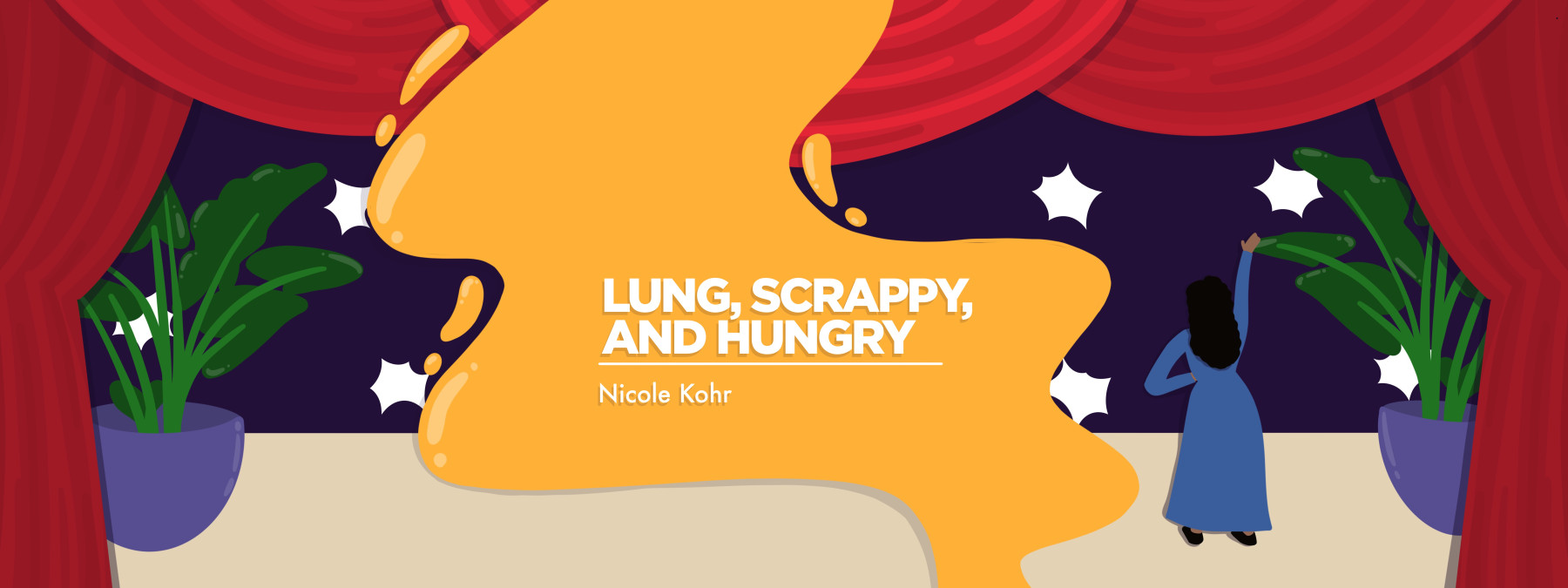‘Everybody Fits’: How Neurodivergence Affected My CF Journey

In honor of National Autism Awareness Month, I wanted to write about neurodivergence, a term used when a person’s brain operates differently from what is typical (also known as neurodiversity). A few conditions that fall under the umbrella of neurodivergence include autism, Tourette syndrome, ADHD, dyslexia, and generalized anxiety.
I was never officially diagnosed as a neurodivergent person. However, after many years of research, I identify as a member of that community now. My symptoms present mostly in the form of anxiety, which has strongly affected my journey with cystic fibrosis (CF).
Diagnosis
I wrote and published my second children’s book last year. The story, titled “My Pants,” follows a little girl named Celana, who is loosely based on me. Celana faces many challenges including anxiety, distraction, and misdiagnoses. Like her, my own neurodivergence has presented me with many challenges, including the delay of my CF diagnosis.
Many doctors dismissed my mom’s research about my respiratory symptoms due to my mixed race. At the time, CF was thought to be prominently an Irish disease. However, my mother is Irish, so that shouldn’t have been a reason for dismissing her inquiries.
Other doctors downplayed my leading symptoms of cough and salty sweat, focusing instead on my lack of eye contact and speech and how behind I was with social interactions. A few even assumed I was deaf because I didn’t speak to anyone outside my home.
Funnily enough, the moment Mom and I returned home from that appointment, I performed a musical theater piece at the top of my lungs, mucus and all, with full choreography and staging. It took five years for my mom to find a doctor who focused on my respiratory symptoms and diagnosed me properly.
School
In an earlier column, I wrote about how my education was affected by cystic fibrosis. Frequent absences from school were the most significant aspect. I had to teach myself most of the educational foundations needed to continue an academic career. Because of this, I had a hard time building on that foundation going forward. I rarely absorbed the topics, but I excelled at memorizing them. I would have done anything to cater to my need for a straight-A academic career — which I achieved, but at what cost? Stress, stress, stress.
With this came the pressure to make an impression on my school mates, whom I only saw a few times a month, depending on my absences. My neurodivergence threw a wrench in this plan. I was incapable of making small talk, and social events were draining. To reduce my anxiety, my mom would help me rehearse situations in advance.
The same goes for procedures. I consider my mom to be the original Pinterest, a child life specialist without the certificate. She catered to my neurodivergence without realizing it and taught me how to set myself up for success.
Medications
If you’re familiar with the movie “Five Feet Apart,” you’ll know the lead character is overwhelmed by obsessive-compulsive tendencies. I identify with this. I haven’t always been the cleanest person, a characteristic I chalk up to my lack of energy, but I’ve always been organized.
Sometimes it’s to my detriment. If things don’t go exactly to plan, or if something is slightly out of place, I have a hard time getting back on track. My medications in particular are neatly organized in my pill case and match a spreadsheet I keep on my OneDrive.
Overthinking
There are times when I have 30 tabs open in my brain and must streamline my priorities. If I had the ability to go without sleep, I would already have published dozens of children’s books. Reality, however, insists that I must tend to my care. Having 30 tabs open during this process is frustrating because my brain craves activity, but my body craves rest. The two are rarely on the same page, making my desire to practice self-care difficult.
The song “Everybody Fits,” from the off-Broadway production “Altar Boyz,” addresses the outcasts in the audience and reminds them that everybody fits in God’s great family:
“Somedays, you just can’t begin/ You feel outside looking in/ It’s like you’re the odd man out/ Let me hold you/ End your doubt.”
I often feel like an outcast. Neurodivergence has made my journey with CF even more complicated, but on the bright side, it’s given me a toolkit of coping skills. I’ve learned how to navigate an unfamiliar situation by rehearsing it ahead of time. I know how to compartmentalize and multitask. Most importantly, I know that neurodivergent people are not disabled, we are differently abled.
Next time a doctor finds themselves lost in the ambiguity that is my neurodivergence, I’ll remind them that all diseases present differently. And because everyone is different, everybody fits.
Note: Cystic Fibrosis News Today is strictly a news and information website about the disease. It does not provide medical advice, diagnosis, or treatment. This content is not intended to be a substitute for professional medical advice, diagnosis, or treatment. Always seek the advice of your physician or other qualified health provider with any questions you may have regarding a medical condition. Never disregard professional medical advice or delay in seeking it because of something you have read on this website. The opinions expressed in this column are not those of Cystic Fibrosis News Today or its parent company, Bionews, and are intended to spark discussion about issues pertaining to cystic fibrosis.









Leave a comment
Fill in the required fields to post. Your email address will not be published.